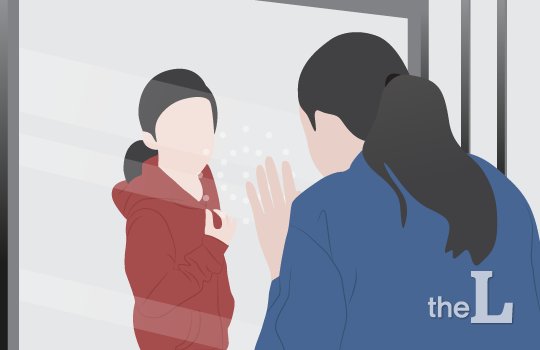
‘The apple doesn’t fall far from the tree.’ This is our society's general idea of inmates’ children, whom few of us have probably ever thought of. According to a 2017 survey conducted by the National Human Rights Commission of Korea, the number of children of inmates is about 54,000, and the number is increasing by 27,000 each year. The children of inmates are in a state of psychological instability as well as financial difficulty after their parents' imprisonment. They are the most vulnerable in society. In reality, however, their protection is poor compared to other vulnerable groups, such as the elderly or the homeless. Legally, their rights are not well preserved, and efforts to improve social awareness are also lacking.
First and foremost, an institutional system is needed to protect the children of inmates. As the children have neither father nor mother, they are forced to grow up in a fragile home environment. According to the commission's survey, 2.4 percent of the inmates' children live without guardians. Of course, they may openly ask for help, but there are also children who hide their situation for fear of being branded "the child of criminals." In the end, the children are forced into the blind spot of welfare. Therefore, the system for them should begin at the very 'first' stage. In fact, the inmates' children are traumatized when they witness the arrest of their parents. In its Generative Discussion Day Recommendations for Children of Detained Parents, the UN Commission on the Rights of the Child recommended that the rights of their children should be considered from the moment their parents are arrested. Nevertheless, a 2017 survey by the NHRC of Korea still found that 6.3 percent of the inmates' children witnessed the arrest of their parents. In addition, opportunities for children to meet their parents need to be supplemented. Currently, a child-friendly family reception room is in operation where children can talk with their parents without a wall. However, this room is not freely available to children whenever they want. In fact, according to a survey conducted by the NHRC of Korea, about 71 percent of the respondents said they did not have access to their children after they were arrested. Under the Constitution, the right to negotiate interviews with underage children and inmates should be protected.
In March of this year, the National Human Rights Commission of Korea recommended that related regulations be revised to prevent any violation of the human rights of children at the scene of arrest. With such measures, the social system seems to take a step toward protecting the human rights of the children of inmates. However, it is social awareness that is as important as changes in the social system. Most of the inmates' children live unseparated from the crimes that their parents committed. This does not just mean trying to defend these children. CAH hopes that it is also an opportunity to think about ‘them’ through their eyes, an act that has seldom been considered before, leaving these children living lives in oblivion from us.
Kwak Da-eun
dashineshere@cau,ac.kr

